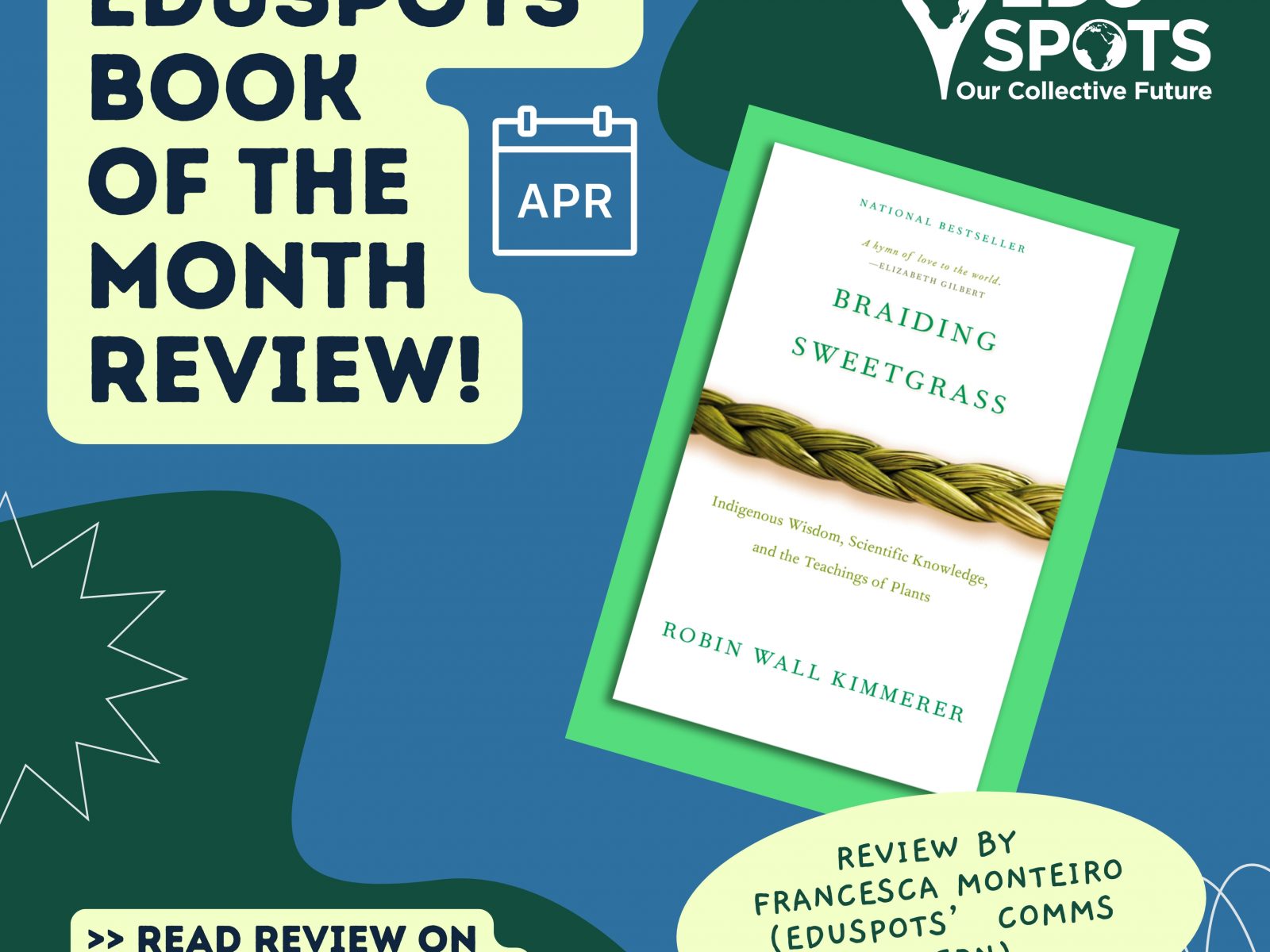Welcome back to our Book of the Month series: April edition!
This month, in celebration of Earth Day, we have chosen to explore Robin Wall Kimmerer’s collection of essays Braiding Sweetgrass, in which she dives into how her Native American heritage has guided her perception of natural preservation. Kimmerer balances her background as a botanist and anthropologist with her indigenous identity to navigate her relationship with the Earth.

Kimmerer writes her essays from the perspective of a botanist, ecologist and university professor whose interest in plants is largely shaped by her background as a Native American. In Braiding Sweetgrass, she delves into how scientific and indigenous knowledge interact, and how by harbouring the strengths of both, she can enrich her own knowledge of the land. To illustrate her deepened passion for ecology, she describes in her essay, The Honourable Harvest, the importance of reciprocity with the land. As Kimmerer walks through a field that has been made sterile by years of chemicals and overconsumption, she instead reveals how she was taught to harvest, through first seeking permission from the land. By carefully analysing how to be respectful to the environment, she selects the leeks that will maximise the growth of the surrounding ecosystem while ensuring to only take what she really needs. She is guided by ancestral stories that warn against overconsumption and greed, teaching her the rules of practising “honourable harvest.” The prolific consumerism and market economies that are instilled in Western culture have led to the exploitation and destruction of ecosystems, demonstrating the consequence of not respecting nature as is taught in indigenous science. Kimmerer offers insight into how we can practice sustainability,
In her search for knowledge about plants and nature, Kimmerer turns to her ancestors’ native language to build on her experience as a botanist. In her essay Learning the Grammar of Animacy, she takes the reader on her journey of relearning the Potawatomi language to tie her academic, scientific background with her indigenous heritage. From the Post-It notes scattered around her house, she learns to reconnect with her ancestors through studying simple vocabulary, experiencing the frustration of learning unfamiliar grammar and conjugations that come with learning a new language. The more she is exposed to the language, the more she realises what the importance of preserving it is – to protect the knowledge, ideology and even humour that is embedded within it. As she studies, she reflects on how colonialism has “scattered not only our words but our people,” resulting in the division of indigenous communities and families, including her own grandfather. Kimmerer reflects on how colonialism has stolen both land and community from indigenous people, and explores how the preservation of dying cultures can positively impact later generations.
Alongside her rediscovery of indigenous knowledge, Kimmerer rejects Western ideologies of consumption and community after comparing them to indigenous views. To epitomise this, she pairs the Pledge of Allegiance, found in every school across the nation, against the Thanksgiving Address, spoken by her neighbours of the Haudenosaunee community. As a nation independent of the United States’ government, the people of Onondaga use the Address as a “statement of identity and an exercise of sovereignty, both political and cultural.” It acts as a reminder of the gifts given by the natural world, reinforcing the values of humility, reciprocity and generosity with the land. Not only does it set “gratitude as the highest priority,” but it is led by all members of the community, with speakers of all generations addressing one another and giving value to everyone’s voice. Kimmerer relays how the principles associated with establishing a relationship with the land significantly overlap with those of building a strong community. In contrast, she criticises the Pledge of Allegiance by claiming that it is deceptive and single-minded, as while it claims that the country stands for “liberty and justice for all,” her ancestors have experienced the oppression and brutality of the government first-hand.
Braiding Sweetgrass urges readers to reimagine our relationship with the Earth by utilising indigenous wisdom to strive for sustainability, while encouraging collective responsibility and shared voices to achieve this. This resonates with EduSpots’ mission to foster inclusive spaces for sharing knowledge, especially in order to enact sustainable change. Kimmerer reminds us that through embracing community and mutual respect, we can protect our environment and cultivate nurturing, sustainable connections to the world around us.

